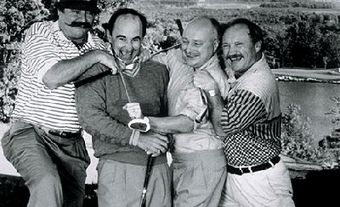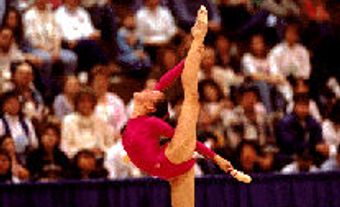Team handball is also known as European or Olympic handball. The object is to score goals by passing and throwing a ball (slightly smaller than a soccer ball) into the opponents' goal. It is played indoors on a court similar in size to that for basketball, with teams of 7 players. The game was introduced in Germany in the 1890s but did not become popular until after WWI, when it adopted many rules from soccer. At first played outdoors with teams of 11 players, the indoor version became the standard form in 1952. It has been an Olympic Games event since 1972. Team handball is widely played in Europe, where its popularity is second only to that of soccer. In Canada, the game was originally called "Borden Ball" because a simplified version was introduced during WWII by European prisoners of war detained at Camp Borden, Ont. During the 1950s, team handball became an organized competitive sport, and the Canadian Team Handball Federation was formed in 1962. The Canadian men's championships have been held since 1968, and the women's since 1973. The dominant provinces for team handball are Québec, Alberta and Manitoba.
Canada has participated in the international team handball competition since 1967, when the senior men's team attended the World Championship. The best ever result for a Canadian national team was in 1981, when the junior women placed eighth. Canada participated in the men's event in the 1976 Olympics in Montréal. Canadian teams played in the Pan-American Games in 1987, where the women placed second and the men fourth. In 1991, the men were again fourth, and in 1995, the women took the silver medal. The 1999 results saw the Canadian women again place second, while the men were fifth.

 Share on Facebook
Share on Facebook Share on X
Share on X Share by Email
Share by Email Share on Google Classroom
Share on Google Classroom


